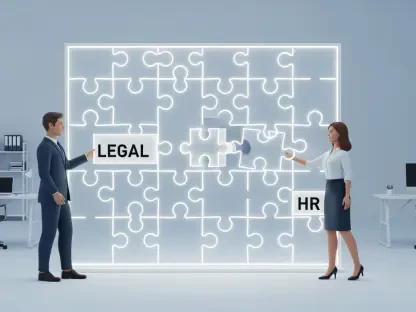Legal fee disputes, particularly in bankruptcy cases, can be intricate and contentious, often involving extensive documentation and prolonged proceedings that challenge the principles of contractual agreements. Bankruptcy cases, by nature, involve a myriad of complexities, such as the exhaustive documentation that spans over extended periods, making fee arrangements a potential point of dispute. Courts typically strive to enforce these agreements within the framework established by legal precedents and findings to maintain fairness and adherence to the agreed terms. A pertinent example is the recent legal victory for the Philadelphia law firm Montgomery McCracken Walker & Rhoads, where the firm’s successful legal endeavor resulted in upholding their fee arrangement. This involved nearly $700,000 in fees agreed upon over a decade ago and highlights the non-negotiable need for meticulously documented agreements in the legal sector. Such cases underscore the continuous scrutiny of attorney fees in the legal industry, making clear that the judiciary holds a pivotal role in affirming contractual terms based on clear, overwhelming evidentiary records.
Financial Implications and Precedents
The financial implications of fee disputes in bankruptcy cases cannot be underestimated, as they often involve substantial sums and can determine the sustainability of legal practice. With courts like the U.S. District Court, led by Judge Wendy Beetlestone, setting precedents by affirming fee agreements, legal professionals gain a clearer understanding of how disputes might be resolved. In Montgomery McCracken Walker & Rhoads’s case, the court’s ruling in favor of the firm marked a significant shift towards upholding pre-agreed terms, providing a blueprint for handling future disputes. This victory reflects the judiciary’s inclination to enforce fee arrangements that are clearly documented without allowing personal preferences or changes in circumstances to overshadow the original agreement. The overwhelming one-sided evidentiary record played a crucial role in the court’s decision, showcasing the importance of having extensive documentation to support fee agreements. The ruling reinforces the precedence that clear, concise, and undeniably documented administration of legal agreements is crucial in securing monetary awards amidst disputes.
Documentation and Legal Frameworks
A key component in the resolution of legal fee disputes in bankruptcy proceedings is documentation, which serves as the benchmark for proving the validity of claims. Detailed documentation is essential in reinforcing the legitimacy of fee arrangements and exploring the boundaries of legal frameworks that govern such agreements. The judiciary often places substantial emphasis on the evidence presented, considering how comprehensively the contractual terms have been outlined and agreed upon. Montgomery McCracken’s success is a testament to the strength of thorough documentation and on-point legal frameworks tailoring fee arrangements. In cases where documentation is overwhelming in favor of one party, courts find it challenging to dismiss the evidence. Therefore, ensuring accurate documentation over prolonged periods is indispensable for any legal entity aiming to enforce agreements successfully. The scrutiny of documents serves as reassurance to legal entities that justice will be served when evidence is abundant and unequivocally sided toward proper understanding and execution of fee agreements.
Impacts of Judicial Decisions
Judicial decisions in legal fee disputes significantly impact the legal industry by providing clarity and exemplifying how courts tend to approach such disagreements. Decisions like those made by Judge Wendy Beetlestone set legal benchmarks that inform law firms about the importance of establishing clear, detailed fee agreements and maintaining them through exhaustive documentation. Additionally, these rulings offer insights into judicial tendencies, reinforcing the necessity of protecting client-legislative agreements through strong evidence. The upheld fee arrangement for Montgomery McCracken demonstrates how courts can bolster trust in the justice system by ensuring fairness and adherence to established legal contracts. The emphasis on meticulously documented agreements encourages legal entities to pay closer attention to their fee structuring, augmenting the importance of precedents that promise fairness amidst disputes. This ongoing scrutiny and support reflect a broader legal perspective that values clarity, precision, and integrity in legal practice, crucial for navigating the intricate matrix of bankruptcy litigation.
Conclusion: Future Considerations
Disputes over legal fees, especially in bankruptcy cases, are often complex and contentious, requiring extensive documentation and lengthy proceedings that test contractual agreements. Bankruptcy inherently presents numerous challenges, including exhaustive paperwork spanning years, which can make fee agreements contested issues. Courts generally aim to uphold these agreements within established frameworks to ensure fairness and adherence to terms. A notable illustration involves the Philadelphia law firm Montgomery McCracken Walker & Rhoads, which recently secured a legal victory to uphold its fee arrangement. This outcome involved nearly $700,000 in fees agreed upon over ten years ago, highlighting the essential need for meticulously documented agreements in the legal field. Such cases emphasize the ongoing scrutiny of attorney fees within the industry, making evident the judiciary’s crucial role in confirming contractual terms based on solid, comprehensive evidentiary records. The continuous oversight ensures that legal processes remain just and balanced.









